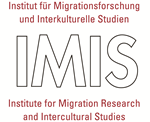| Projektart |
Stipendium |
| Finanzierung |
|
| Themen |
- Aufnahme und Integration
- Flüchtlingspolitik
- Gewaltmigration
|
| Disziplinen |
- Ethnologie
- Politikwissenschaften
- Soziologie
|
| Laufzeit |
10/2016 ‒ 05/2019 |
| Geographischer Fokus |
|
| Institutionen |
|
| Beteiligte Personen |
|
Kurzbeschreibung
(nicht vorhanden)
Abstract
This research project focuses on the forms of contact between city-dwelling Syrians in Turkey and Germany, and people who joined together in local initiatives to aid them in resettlement. As of March 2016, the number of Syrian migrants registered in Turkey has reached 2.7 million. Only ten per cent of these live in camps, with the rest trying to build new lives around the country. The Turkish state is responsible for the provision of supplies and services to camp residents; those living in cities, however, struggle to survive by their own means and with aid provided by NGOs or locals. Most of these aid efforts are directed towards providing humanitarian aid, i.e. food, clothing, furniture and heating equipment, while some initiatives arrange emergency housing. There are also other groups offering language classes, medical assistance, playgroups, and so on.
The contact between volunteers of these groups and their Syrian beneficiaries are sometimes only one-off, yet others expand over time and turn into established relationships. The more developed a relationship is, the more prominent the aspects of care become. Here, the concept of care stands both for caring about and caring for; respectively addressing the emotional and embodied aspects of care relations. These care relations are the loci of enactments of compassion, love, pity, responsibility, gratefulness, and indebtedness, all of which are often intertwined in complex ways.
Drawing on the literature on ethics of and focusing on the workings of power in such ethics, I argue that discipline is immanent to care. In other words, care relationships necessarily lead to the disciplining of both the carers and the cared for. The core question here is, which normative registers are articulated in the enactments of the care-discipline dyad: religious norms, nationalist aspirations, prevalent conceptions of gender, and/or capitalist work ethics? The special blend differs for different organisations, i.e. religious or secular organisations, and for different beneficiaries, i.e. Turkish, Kurdish, Arab or Roma, and so on.
My on-going ethnographic research focuses on encounters in the field in order to explore and illustrate how care and discipline are enacted in the relations between Syrian migrants and local volunteers. These enactments are of particular importance in showing the expectations from Syrian migrants regarding their integration.
I am also planning to extend this research to German civic initiatives that aid refugees coming to Germany for relocation. Initiatives working with the residents of Berlin’s Massenunterkünften would be possible research partners. As civic initiatives that respond to the urgent needs of refugees, the encounters between volunteers and beneficiaries of these organisations would provide a good case for comparison, and such data-rich comparison would benefit policy-oriented and academic debates as well as social work practices in both countries.









